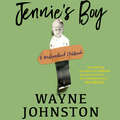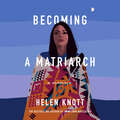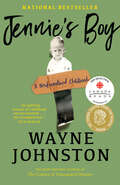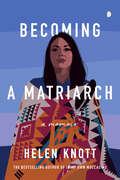Title search results
Showing 1 - 5 of 5 items

A two-spirit journey: the autobiography of a lesbian Ojibwa-Cree elder (Critical studies in Native history ; #18)
By Ma-Nee Chacaby, Mary Louisa Plummer. 2016
As a child, Chacaby learned spiritual and cultural traditions from her Cree grandmother and trapping, hunting, and bush survival skills…
from her Ojibwa stepfather. She also suffered physical and sexual abuse by different adults, and in her teen years became alcoholic herself. At twenty, Chacaby moved to Thunder Bay with her children to escape an abusive marriage. Abuse, compounded by racism, continued, but Chacaby found supports to help herself and others. Over the following decades, she achieved sobriety; trained and worked as an alcoholism counsellor; raised her children and fostered many others; learned to live with visual impairment; and came out as a lesbian. In 2013, Chacaby led the first gay pride parade in Thunder Bay. Ma-Nee Chacaby has emerged from hardship grounded in faith, compassion, humour, and resilience. Her memoir provides unprecedented insights into the challenges still faced by many Indigenous people. 2016.
Jennie's Boy: A Newfoundland Childhood
By Wayne Johnston. 2022
Consummate storyteller and bestselling novelist Wayne Johnston reaches back into his past to bring us a sad, tender and at…
times extremely funny memoir of his Newfoundland boyhood.For six months between 1966 and 1967, Wayne Johnston and his family lived in a wreck of a house across from his grandparents in Goulds, Newfoundland. At seven, Wayne was sickly and skinny, unable to keep food down, plagued with insomnia and a relentless cough that no doctor could diagnose, though they had already removed his tonsils, adenoids and appendix. To the neighbours, he was known as "Jennie’s boy," a backhanded salute to his tiny, ferocious mother, who felt judged for Wayne’s condition at the same time as worried he might never grow up. Unable to go to school, Wayne spent his days with his witty, religious, deeply eccentric maternal grandmother, Lucy. During these six months of Wayne’s childhood, he and Lucy faced two life-or-death crises, and only one of them lived to tell the tale. Jennie’s Boy is Wayne’s tribute to a family and a community that were simultaneously fiercely protective of him and fed up with having to make allowances for him. His boyhood was full of pain, yes, but also tenderness and Newfoundland wit. By that wit, and through love—often expressed in the most unloving ways—Wayne survived.
Becoming a Matriarch
By Helen Knott. 2023
When matriarchs begin to disappear, there is a choice to either step into the places they left behind, or to…
craft a new space.Helen Knott’s debut memoir, In My Own Moccasins, wowed reviewers, award juries, and readers alike with its profoundly honest and moving account of addiction, intergenerational trauma, resilience, and survival. Now, in her highly anticipated second book, Knott returns with a chronicle of grief, love, and legacy.Having lost both her mom and grandmother in just over six months, forced to navigate the fine lines between matriarchy, martyrdom, and codependency, Knott realizes she must let go, not just of the women who raised her, but of the woman she thought she was.Woven into the pages are themes of mourning, sobriety through loss, and generational dreaming. Becoming a Matriarch is charted with poetic insights, sass, humour, and heart, taking the reader over the rivers and mountains of Dane Zaa territory in Northeastern British Columbia, along the cobbled streets of Antigua, Guatemala, and straight to the heart of what matriarchy truly means. This is a journey through pain, on the way to becoming.
Jennie's Boy: A Newfoundland Childhood
By Wayne Johnston. 2022
NATIONAL BESTSELLERNAMED A BEST BOOK OF THE YEAR BY THE CBCWINNER OF THE 2023 LEACOCK MEDAL FOR HUMOURConsummate storyteller and…
bestselling novelist Wayne Johnston reaches back into his past to bring us a sad, tender and at times extremely funny memoir of his Newfoundland boyhood.For six months between 1966 and 1967, Wayne Johnston and his family lived in a wreck of a house across from his grandparents in Goulds, Newfoundland. At seven, Wayne was sickly and skinny, unable to keep food down, plagued with insomnia and a relentless cough that no doctor could diagnose, though they had already removed his tonsils, adenoids and appendix. To the neighbours, he was known as &“Jennie&’s boy,&” a backhanded salute to his tiny, ferocious mother, who felt judged for Wayne&’s condition at the same time as worried he might never grow up.Unable to go to school, Wayne spent his days with his witty, religious, deeply eccentric maternal grandmother, Lucy. During these six months of Wayne&’s childhood, he and Lucy faced two life-or-death crises, and only one of them lived to tell the tale.Jennie&’s Boy is Wayne&’s tribute to a family and a community that were simultaneously fiercely protective of him and fed up with having to make allowances for him. His boyhood was full of pain, yes, but also tenderness and Newfoundland wit. By that wit, and through love—often expressed in the most unloving ways—Wayne survived.
Becoming a Matriarch
By Helen Knott. 2023
When matriarchs begin to disappear, there is a choice to either step into the places they left behind, or to…
craft a new space.Helen Knott&’s debut memoir, In My Own Moccasins, wowed reviewers, award juries, and readers alike with its profoundly honest and moving account of addiction, intergenerational trauma, resilience, and survival. Now, in her highly anticipated second book, Knott returns with a chronicle of grief, love, and legacy.Having lost both her mom and grandmother in just over six months, forced to navigate the fine lines between matriarchy, martyrdom, and codependency, Knott realizes she must let go, not just of the women who raised her, but of the woman she thought she was.Woven into the pages are themes of mourning, sobriety through loss, and generational dreaming. Becoming a Matriarch is charted with poetic insights, sass, humour, and heart, taking the reader over the rivers and mountains of Dane Zaa territory in Northeastern British Columbia, along the cobbled streets of Antigua, Guatemala, and straight to the heart of what matriarchy truly means. This is a journey through pain, on the way to becoming.